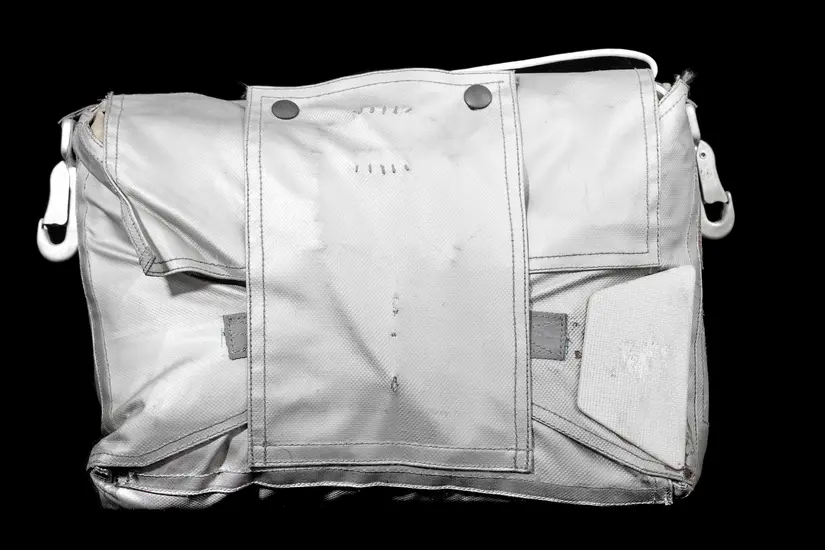
Spaceflight and Surviving Shark Attacks
Jul 24, 2018
- Mercury and Gemini astronauts carried standard military issue survival kits in the event they landed outside of their planned recovery area.
- These survival kits contained a shark repellent knowns as “Shark Chaser” made of copper acetate.
- “Shark Chaser” was not included in Apollo survival kits which, unlike those used in Mercury and Gemini, were largely custom-made for the astronauts.
Shaq does shark week. Ronda Rousey against a bull shark. Bear Grylls faces off with … yes … a shark. Shark Week is full of celebrities having close encounters with one of the ocean’s greatest predators, but did you know early astronauts were also prepared for their own tussle with the fearsome fish?
“In the early orbital missions, mission planners weren’t at all sure that the rentry capsule would always come down in the designated splashdown zones,” said Michael Neufeld, space history curator. “Astronaut Scott Carpenter landed 250 miles off course and Gemini VIII was forced down in the Pacific Ocean off Okinawa.”
To prepare for this contingency, astronauts carried survival and signal equipment on their missions in the event they landed outside of the planned recovery area. Along with desalination kits and waterproof matches, Mercury and Gemini astronauts also carried shark repellent.
These early survival kits were standard military issue for sailors and aviators in the United States Navy and contained the shark repellent known as “Shark Chaser.” Researchers in the 1940s found that copper acetate was more than 60 percent effective in deterring shark bites for up to six or seven hours—it smelled like a dead shark when released into the water. (Learn about Julia Child’s role in baking up the repellent.)
Survival kits, or rucksacks, for the Apollo lunar missions differed considerably. Most of the items in the rucksacks were built specifically for the astronauts. Each Apollo spacecraft was equipped with a set of two survival rucksacks that contained items like sunscreen, a survival radio, water cans, and sea marker dye. No shark repellent.
Fortunately, for both early astronauts and ocean enthusiasts, shark attacks are very rare. The U.S. Navy stopped issuing Shark Chaser in the 1970s.
Related Topics
You may also like

We rely on the generous support of donors, sponsors, members, and other benefactors to share the history and impact of aviation and spaceflight, educate the public, and inspire future generations. With your help, we can continue to preserve and safeguard the world’s most comprehensive collection of artifacts representing the great achievements of flight and space exploration.
Support the Museum
We rely on the generous support of donors, sponsors, members, and other benefactors to share the history and impact of aviation and spaceflight, educate the public, and inspire future generations. With your help, we can continue to preserve and safeguard the world’s most comprehensive collection of artifacts representing the great achievements of flight and space exploration.











